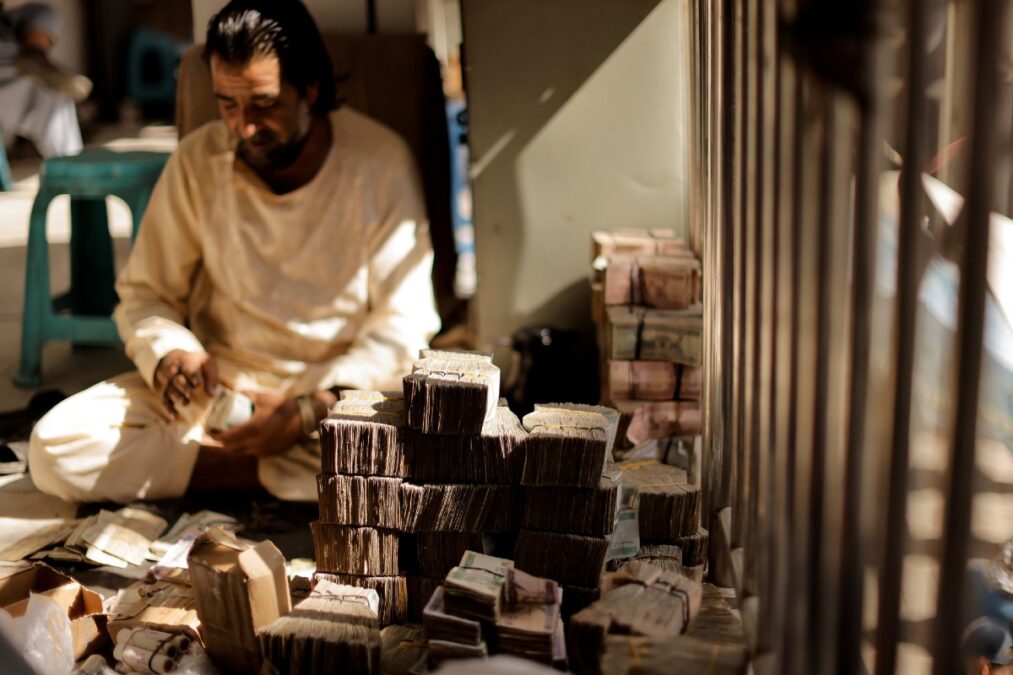The afghani currency has dropped in value against the US dollar and other foreign currencies after the international community temporarily suspended shipments of hard cash into the country.
Between December 2021 and mid-December 2022, the international community shipped in between $40 million and $80 million a week in hard cash for humanitarian aid purposes. The shipments were suspended after the Taliban announced a ban on women working for non-governmental organizations (NGOs).
The money exchange union at Sarai Shahzada, Afghanistan’s biggest money exchange market, meanwhile said this week the suspension of cash shipments has had a negative impact on the value of the afghani.
Abdulrahman Zirak, the union’s spokesman, said the afghani would become more unstable if the international community does not lift the suspension.
On Tuesday, the exchange rate sat at 90 AFN to the US dollar, while it had hovered around the 88 AFN mark in the past few days.
“Whenever the value of the afghani gets low and the value of the dollar gets high, the Central Bank intervenes in the market and injects dollars into the market. The circulation of news that dollars have not been sent to Afghanistan has had a negative effect on the market,” Zirak said.
Sayed Masoud, an economic analyst, said the value of the afghani does not depend on the economy of Afghanistan, “but money trade, which is controlled by money exchangers in Afghanistan, has a severe impact on it; they (money exchangers) get 40 million dollars every week, indeed, they sell dollars that are pumped through the central bank into the market. And then send the money out of Afghanistan.”
The Taliban-run central bank of Afghanistan increased dollar auctions following the suspension of cash aid to Afghanistan and since December 14, 2022, the bank has auctioned off about $100 million in order to maintain the stability of the afghani currency.
The bank auctioned another $40 million on Tuesday.
In a tweet, the bank stated: “Hereby, eligible banks and exchange and money service companies are requested to participate in this auction and the winners of the auction are obliged to settle their accounts by the end of the auction day. They are obliged to deliver their debt to Da Afghanistan Bank in cash in one go payment.”
Based on the latest report of the national statistics and information department of Afghanistan, the country has a trade deficit currently of more than 80 percent and that most goods needed in the country are imported from countries including Iran, Pakistan, China, and other Central Asian nations.
Afghan traders said commercial goods are being bought using US dollars and with the weaker afghani, the cost of goods will increase across the country unless the currency stabilizes.




